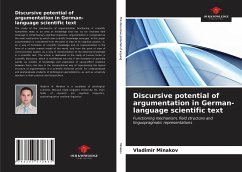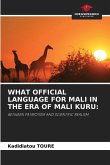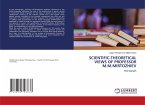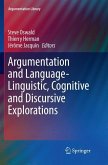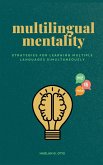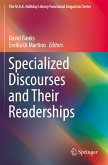The study of the mechanism of argumentation functioning in scientific humanities texts is an area of knowledge that has so far received little coverage in contemporary cognitive linguistics. Argumentation is recognized as the main mechanism by which new scientific knowledge emerges. In this paper argumentation is considered from the point of view of its cognitive aspect, i.e. as a way of formation of scientific knowledge and its representation in the form of a certain mental model of the world, and from the point of view of communicative aspect, as a way of representation of the obtained knowledge in a scientific text. The article is dedicated to the study of human factor in scientific discourse, which is manifested not only in the formation of possible worlds as models of knowledge and explication of cause-effect relations between them, but also in the compositional way of representing the logical structure of argumentation in a scientific historical article. For undergraduate and postgraduate students of philological specializations, as well as university teachers in their practice and researchers.
The study of the mechanism of argumentation functioning in scientific humanities texts is an area of knowledge that has so far received little coverage in contemporary cognitive linguistics. Argumentation is recognized as the main mechanism by which new scientific knowledge emerges. In this paper argumentation is considered from the point of view of its cognitive aspect, i.e. as a way of formation of scientific knowledge and its representation in the form of a certain mental model of the world, and from the point of view of communicative aspect, as a way of representation of the obtained knowledge in a scientific text. The article is dedicated to the study of human factor in scientific discourse, which is manifested not only in the formation of possible worlds as models of knowledge and explication of cause-effect relations between them, but also in the compositional way of representing the logical structure of argumentation in a scientific historical article. For undergraduate and postgraduate students of philological specializations, as well as university teachers in their practice and researchers.
The study of the mechanism of argumentation functioning in scientific humanities texts is an area of knowledge that has so far received little coverage in contemporary cognitive linguistics. Argumentation is recognized as the main mechanism by which new scientific knowledge emerges. In this paper argumentation is considered from the point of view of its cognitive aspect, i.e. as a way of formation of scientific knowledge and its representation in the form of a certain mental model of the world, and from the point of view of communicative aspect, as a way of representation of the obtained knowledge in a scientific text. The article is dedicated to the study of human factor in scientific discourse, which is manifested not only in the formation of possible worlds as models of knowledge and explication of cause-effect relations between them, but also in the compositional way of representing the logical structure of argumentation in a scientific historical article. For undergraduate and postgraduate students of philological specializations, as well as university teachers in their practice and researchers.

